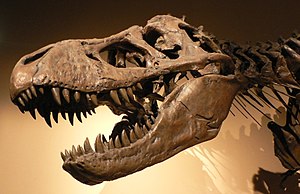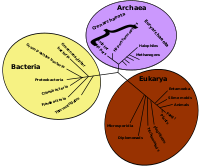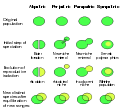Portal:Evolutionary biology
Introduction
Selected article -Richard Dawkins FRS FRSL (born 26 March 1941) is a British evolutionary biologist, zoologist, and author. He is an emeritus fellow of New College, Oxford, and was Professor for Public Understanding of Science in the University of Oxford from 1995 to 2008. His 1976 book The Selfish Gene popularised the gene-centred view of evolution, as well as coining the term meme. Dawkins has won several academic and writing awards. Dawkins is well known for his criticism of creationism and intelligent design as well as for being a vocal atheist. Dawkins wrote The Blind Watchmaker in 1986, arguing against the watchmaker analogy, an argument for the existence of a supernatural creator based upon the complexity of living organisms. Instead, he describes evolutionary processes as analogous to a blind watchmaker, in that reproduction, mutation, and selection are unguided by any sentient designer. In 2006, Dawkins published The God Delusion, writing that a supernatural creator almost certainly does not exist and that religious faith is a delusion. He founded the Richard Dawkins Foundation for Reason and Science in 2006. Dawkins has published two volumes of memoirs, An Appetite for Wonder (2013) and Brief Candle in the Dark (2015). (Full article...)General images -The following are images from various evolutionary biology-related articles on Wikipedia.
Selected picture - Tyrannosaurus rex skull at Palais de la Découverte in Paris. Did you know... -
CategoriesRelated portalsTasks you can do
Related topicsWikiProjectsWikiProjects connected with biology: A complete list of scientific WikiProjects can be found here. See also Wikispecies, a Wikimedia project dedicated to classification of biological species. Associated WikimediaDiscover Wikipedia using portals |








![Image 6A covalent adduct between the metabolite of benzo[a]pyrene, the major mutagen in tobacco smoke, and DNA (from Mutation)](http://upload.wikimedia.org/wikipedia/commons/thumb/d/d8/Benzopyrene_DNA_adduct_1JDG.png/87px-Benzopyrene_DNA_adduct_1JDG.png)









































